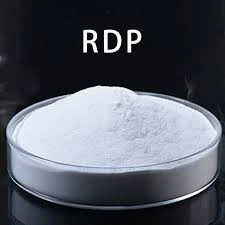
Dec . 12, 2024 22:33 Back to list
hydroxyethyl cellulose
Hydroxyethyl Cellulose A Versatile Polymer in Modern Applications
Hydroxyethyl cellulose (HEC) is a non-ionic, water-soluble polymer derived from cellulose, a natural biopolymer obtained from plant cell walls. It is primarily used in various industrial and consumer applications due to its unique properties, including thickening, binding, and film-forming abilities. With its versatile nature, HEC is a crucial component in industries ranging from pharmaceuticals to cosmetics and construction.
Chemical Structure and Properties
Hydroxyethyl cellulose is produced by ethoxylating cellulose, which introduces hydroxyethyl groups into the cellulose structure. This modification enhances the solubility of cellulose in water and improves its ability to function as a thickening agent. HEC is characterized by its diverse viscosities, which can be adjusted depending on the degree of substitution and molecular weight. These variations allow manufacturers to tailor HEC grades for specific applications, making it an essential ingredient in many formulations.
One of HEC’s most notable properties is its ability to retain moisture. This characteristic is particularly beneficial in cosmetics and personal care products, where hydration plays a crucial role in skin health. Additionally, HEC exhibits excellent stability under varying pH levels and temperatures, which adds to its appeal in various formulations.
Applications in Pharmaceuticals
In the pharmaceutical industry, hydroxyethyl cellulose is commonly used as a binder and controlled-release agent in tablet formulations. Its adhesive properties help to ensure the uniform distribution of active pharmaceutical ingredients (APIs) while maintaining the integrity of the tablet during the manufacturing process. HEC is also utilized in the preparation of gels, creams, and emulsions, providing a smooth texture and enhancing the product's stability.
HEC’s ability to form gels is particularly advantageous in ophthalmic solutions, where it acts as a viscosity-enhancing agent in eye drops. This property not only improves the comfort of the user but also prolongs the contact time of the medication with the eye, thus enhancing therapeutic efficacy.
Cosmetic and Personal Care Products
hydroxyethyl cellulose

The cosmetic industry extensively employs hydroxyethyl cellulose for its thickening and stabilizing properties
. In lotions, creams, and shampoos, HEC contributes to a desirable texture and enhanced application properties. Its ability to retain moisture makes it a popular choice in skin care products, helping to maintain hydration levels and improve skin feel.Moreover, HEC acts as a film former, lending water resistance to various formulations, such as sunscreens and anti-aging products. Its compatibility with other ingredients allows formulators to create stable emulsions, making it a preferred thickening agent in a wide range of cosmetic applications.
Construction and Building Materials
HEC is also making significant strides in the construction industry, where it is used as a thickening agent in cement-based materials. By improving the workability and adhesion of mortars and plasters, HEC enhances the application and performance properties of these products. Additionally, its water retention properties allow for better hydration of cement during curing, which can lead to improved strength and durability.
In tile adhesives and grouts, HEC contributes to a smooth application and helps prevent sagging, ensuring that the tiles adhere properly during installation. The ability to enhance the performance of building materials highlights HEC’s role as an essential additive in modern construction.
Environmental Considerations
As a cellulose-derived product, hydroxyethyl cellulose is biodegradable and considered environmentally friendly. This attribute makes it an attractive choice for companies focused on sustainability and eco-friendly products. With increasing consumer awareness and demand for sustainable ingredients, HEC is well-positioned to gain further traction in various industries.
Conclusion
In summary, hydroxyethyl cellulose is a versatile polymer with a wide array of applications across multiple industries. Its unique properties, including thickening, water retention, and film-forming capabilities, make it a valuable ingredient in pharmaceuticals, cosmetics, and construction materials. As advancements in formulation technology continue, the demand for hydroxyethyl cellulose is likely to grow, reinforcing its position as an essential component in modern product development. With its eco-friendly profile, HEC is not only meeting current market needs but also contributing to a sustainable future.
-
Versatile Hpmc Uses in Different Industries
NewsJun.19,2025
-
Redispersible Powder's Role in Enhancing Durability of Construction Products
NewsJun.19,2025
-
Hydroxyethyl Cellulose Applications Driving Green Industrial Processes
NewsJun.19,2025
-
Exploring Different Redispersible Polymer Powder
NewsJun.19,2025
-
Choosing the Right Mortar Bonding Agent
NewsJun.19,2025
-
Applications and Significance of China Hpmc in Modern Industries
NewsJun.19,2025







